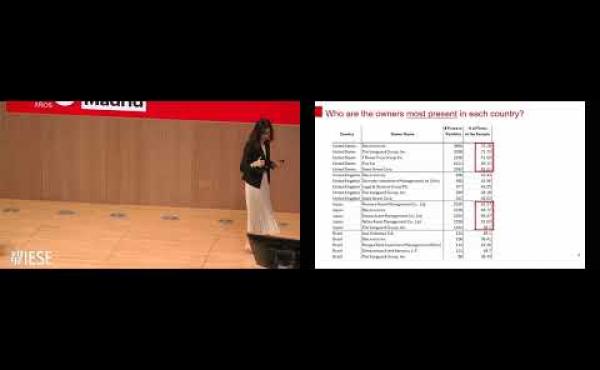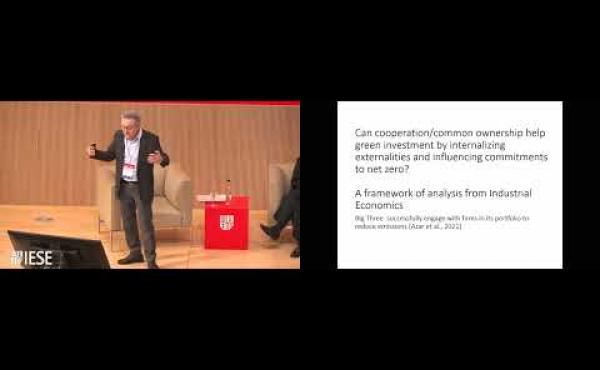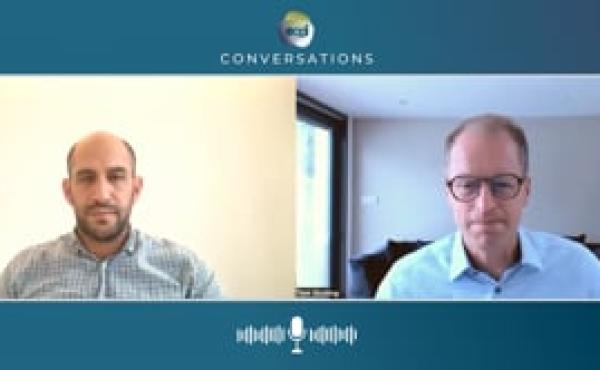Common Ownership

Common Ownership centres on the implications of growing horizontal ownership concentration in industries by large investment managers, especially those offering index tracking funds. The debate addresses the competition analysis of any company that may want to engage in a horizontal merger (or any merger at all). And because it directly affects the actions of large asset managers as shareholders, it is also bears directly on the debate over large asset managers’ stewardship role. From a macroeconomic perspective, central bankers and policy makers are discussing the reasons for stagnant wages and a falling labour share relative to capital. A growing and contested academic literature has argued that horizontal ownership concentration exacerbates these trends by reducing competition. What is the role of asset managers in the governance of listed companies and does constraining that role serve to increase that of other categories shareholders, producing a set of unintended governance consequences? Does the stewardship agenda contribute to lessening product market competition by encouraging (if not demanding) asset managers to influence companies’ strategy? What are the consequences for antitrust and securities regulators? Given the powerful forces giving rise to equity intermediation and concentration in the asset management industry now catalysed by sharply dropping (or the complete elimination of) management fees, how does competition policy create trade-offs with other areas of policy concern such as facilitating retirement savings in developed nations with aging populations? Is ownership concentration producing a normative conception of corporate governance that is univocal?
In May 2018, at the ECGI Annual Members Meeting, a focus panel on “Common Ownership: Antitrust Meets Corporate Governance” discussed the challenges faced by asset managers holding significant stakes in multiple companies in the same industry. The discussion brought out very clearly the tension between increased stewardship and governance involvement on the one hand, and concerns about potential collusion between competing firms having the same shareholders. The discussion highlighted the desirability of increased stewardship engagement that does not impair product market competition and thus entails no antitrust liability risk for asset managers.
In August 2018, the research that triggered much of this debate was published in the Journal of Finance, (available here) : Azar, José and Schmalz, Martin C. and Tecu, Isabel "Anticompetitive Effects of Common Ownership” (Journal of Finance, Volume 73, Issue 4, Pages: 1513-1565, First Published: 25 May 2018). The publication includes a long internet appendix and a replication package. The package should make it possible for anyone with access to Thomson Reuters ownership data and a Stata licence to replicate the results of the paper.
Also in August, a paper with opposing findings (Dennis, Patrick J. and Gerardi, Kristopher and Schenone, Carola, Common Ownership Does Not Have Anti-Competitive Effects in the Airline Industry (February 5, 2018), available at SSRN: https://ssrn.com/abstract=3063465 or http://dx.doi.org/10.2139/ssrn.3063465) was awarded the best conference paper prize at the European Finance Association annual meeting in Warsaw, a significant endorsement. The Prize Committee comprised of Alex Edmans, London Business School and ECGI; Alexi Savov, NYU Stern; and Laura Starks, The University of Texas at Austin and ECGI.
ECGI will continue to track the debate and make new contributions and resources available through these pages.


















































